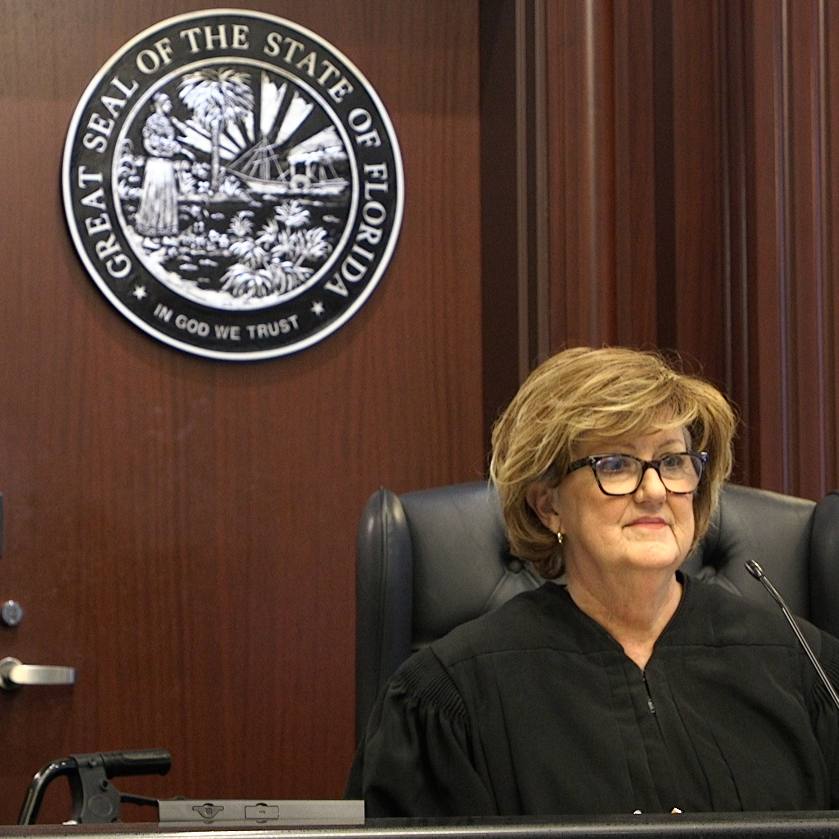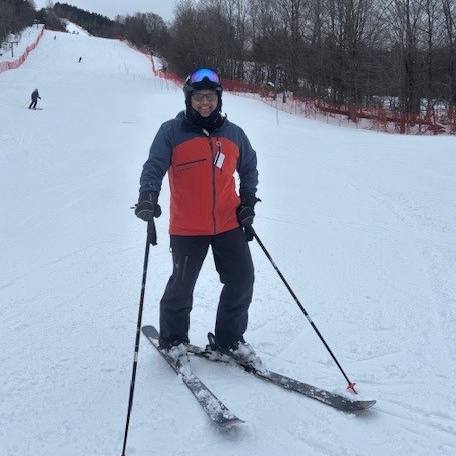Courage. Optimism. Acceptance. Those are just a few of the attributes that define the determination of Karen Ramsey, whose rare medical condition makes her a member of an exclusive club. One to which she would much prefer not to belong. Karen has Von Hippel-Lindau syndrome, or VHL, in which a gene mutation causes her body to be unable to suppress the growth of tumors.
Not one to sink into the comfort of denial, after her diagnosis Karen, now 56, dug in and did her homework. She learned that at least eight areas of her body could potentially succumb to tumors. She understood her future may forever be altered. In spite of the difficult diagnosis, with the support of her care team at Mayo Clinic, Karen found a way to move forward in a positive way.
Facing up to the challenges
Von Hippel-Lindau syndrome triggered a series of serious medical issues for Karen. It forced the removal of one of her adrenal glands in 2010. It resulted in a diagnosis of kidney cancer in 2011, which required surgery at Mayo Clinic’s Arizona campus. And tumors have invaded seven different areas of Karen’s body.
The three years following her kidney surgery were relatively calm, but then came another round of bad news. The cancer had spread to her brain.
“We thought they had gotten it all,” Karen says. “Then I found out I had metastasized kidney cancer in the temporal lobe.”
“Mayo Clinic has been so responsive to every single thing I have requested. They completed a rigorous process to find doctors to handle each of the different elements of VHL.” — Karen Ramsey
Days later, Karen’s case was the topic of discussion by Mayo Clinic physicians at a weekly meeting. When reviewing her imaging slides, the physicians saw spots on Karen’s lungs.
“On Monday, I found out about the brain tumor. On Friday, I found out about the tumors in my lungs,” Karen says. “At that time, I was given a stage 4 diagnosis.”
When she asked her doctors how long she had to live, they told her two or possibly three years. Since then, the cancer has advanced to her pancreas and bones, as well. But even in the face of this dire situation, Karen is not giving up.
“It's been almost three years, and I'm nowhere close to dying,” she says. “How I live my life and how I view my cancer really makes a difference in my survival.”
Relying on her team
Karen, whose career has centered on human resources, effective communication and strategic development, has mastered the art of advocating for herself, and she’s been happy with the support she’s received from her Mayo Clinic care team.
“Mayo Clinic has been so responsive to every single thing I have requested,” she says. “They completed a rigorous process to find doctors to handle each of the different elements of VHL.”
Her team of physicians has been her mainstay, Karen says. She is especially close to oncologist Donald Northfelt, M.D.
“He took me on as a rare-disease patient,” she says. “He helped me navigate the whole process and made recommendations about which doctors I should see.”
Also pivotal to her journey has been Thai Ho, M.D., Ph.D., “a kidney cancer specialist who knew about VHL and who guided me on which medicines I should and shouldn't take,” Karen says.
“I don’t have to know everything, because there is somebody down the hall who I can reach out to who knows so much about that particular topic.” — Dr. Donald Northfelt
She gives credit to neurologist Alyx Porter, M.D., too, saying, “She has been terrific, because I've had two tumors in my brain, and we anticipate additional ones to come.”
Karen describes the three physicians as “my triad of support.”
The Mayo Clinic team approach is ideal for dealing with diseases such as VHL, according to Dr. Northfelt. “I don’t have to know everything, because there is somebody down the hall who I can reach out to who knows so much about that particular topic,” he says.
Thankful for his dedication to her case and those of others in similar situations, Karen tells Dr. Northfelt, “You choose to be there for people like me, who are the strange cases, and the odd balls who have genetic issues. I'm just always going to be grateful to you for that.”
Concentrating on the positive
Karen is now back home in Charlottesville, Virginia, where she vows to live her life fully, to bond with family and friends — and maybe raise a few chickens. She’s also active in the VHL Alliance, advocating for others who share her condition.
Much of her self-care revolves around food, exercise and her personal relationships. She works with a personal trainer and focuses on eating a healthy diet. Throughout Karen's medical odyssey, her husband of 35 years and two grown children have pulled together in support.
“That’s one of the real blessings of this diagnosis,” Karen says. “We are closer than ever. We talk about those deep sorts of things. We are fully prepared.”
And if needed, her Mayo Clinic cheering squad is all-in to support her through her journey.
HELPFUL LINKS
- Learn about Mayo Clinic’s Von Hippel-Lindau Clinic.
- Read about the Mayo Clinic Cancer Center.
- Explore Mayo Clinic’s Arizona campus.
- Request an appointment.








